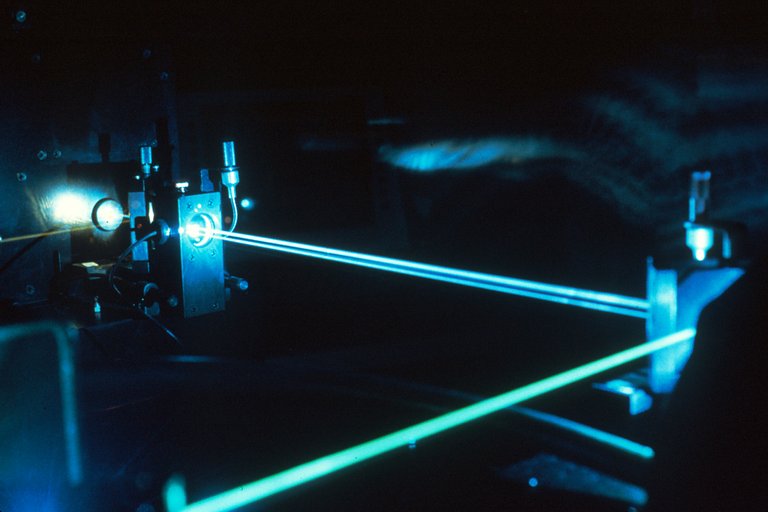People who like physics do often stop and wonder what the hell is going on with the quantum world. For example, if you want to make an electron move, well, just push it with a single photon. But if you want to stop an electron you will have to use extreme intensity radiation. But if you are hardcore enough, you might just do it.

**Source: Wikimedia Commons
And a science team from the Imperial College London has been hardcore enough. They created a laser which they focused on an area a few millimeters large. Then they fired this laser onto this area from just 40 femtoseconds (a femtosecond is 1/1 000 000 000 000 000 of a second). And this laser, which itself was about billion million times brighter than the Sun’s surface collided with a beam of high-energy electrons, created and focused with the laser wakefield acceleration technology. And the electrons stopped.
Whenever light collides with an object usually it reflects or refracts. But if such an object is moving really fast and the light is extremely intensive, weird things start to happen. For example, electrons in such a situation will emit so much energy that they might stop. Physicists call the radiation reaction. From what we know, this phenomenon happens in extreme environments like the environment near black holes. But we also know about this phenomena from cyclotrons here on Earth.
One of the studies authors, Alexander Thomas from the Lancaster University and the University of Michigan, thinks it was fascinating to completely stop a beam of electrons using a beam of light much thinner than a razor. To achieve this, the scientists used a petawatt laser named Gemini. The laser created photons in the visible light spectrum, but after the collision, the energy levels of the photons achieved up to gamma radiation levels.
Another member of the team, Mattias Marklund from the Swedish Chalmers University of Technology, mentions that now we are in unexplored territory. Classical physics aren’t up to speed here anymore so quantum mechanics are taking over. Experiments with stopping laser may become the groundwork for research of quantum high-energy lasers and many other crazy things. And astrophysicists will certainly be interested in them as well, as they could use the data to understand what the hell is happening near black holes and quasars.
Sources:
Holy shit this is exciting. If we can stop them, we can find where they are and observe them more carefully.